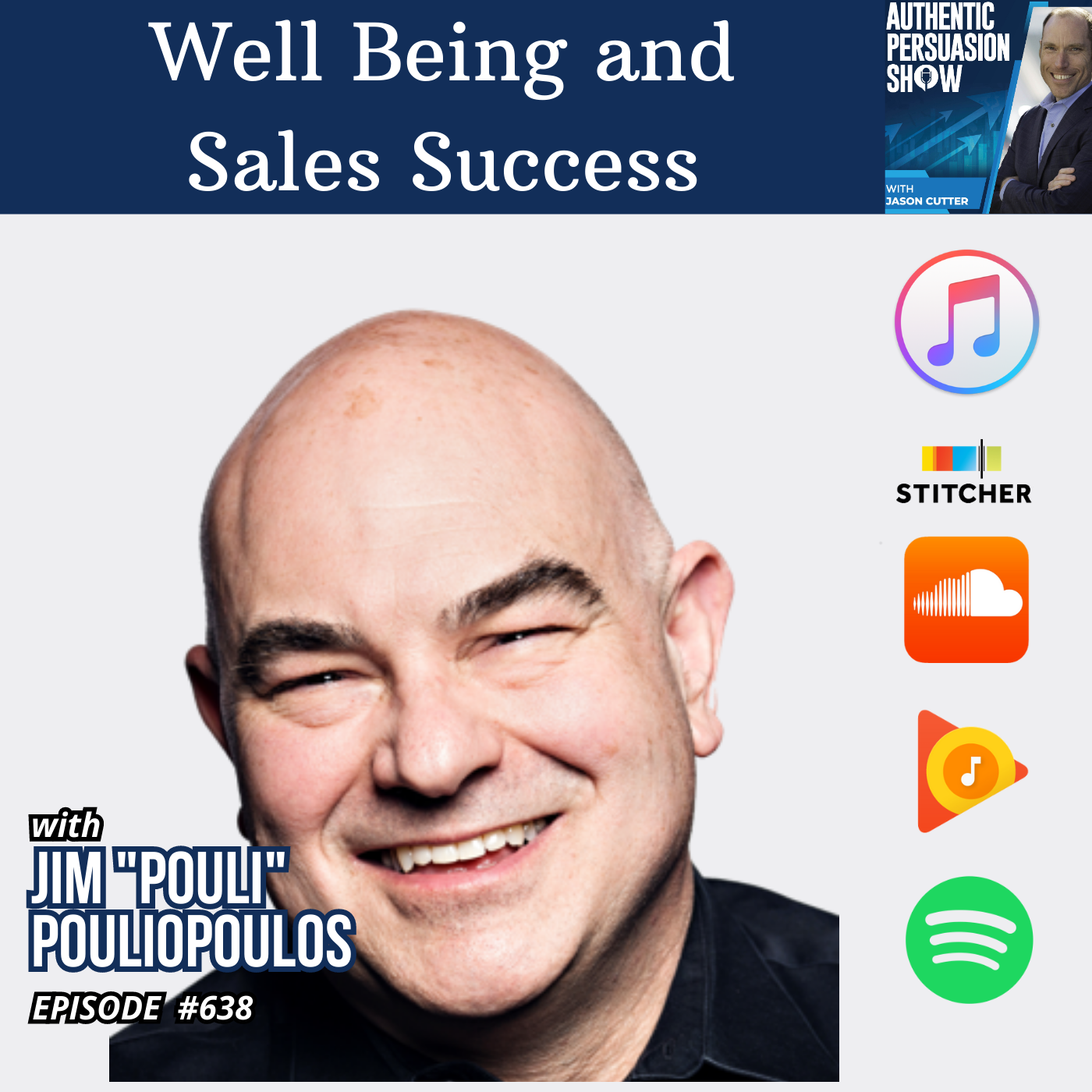Show Notes
It’s a topic that is very polarizing.
Professional businesses and managers see the value in their reps using some level of script.
True sales professionals understand how scripting help them produce consistent, winning results (and over time that script is in their head not on paper).
So why do so many people in the sales world absolutely resist the use, or even the thought of scripting?
And why would I spend a whole week on scripting and potentially lose all the sales people who were listening to the show?
Because scripting is important, for many reasons.
In this first episode of Script Week, I talk about some reasons why it’s important.
Episode 26 – Transcript
On today’s episode I am going to talk about sales scripts and why they are important for successful sales professionals.
Welcome to The Sales Experience Podcast. My name is Jason Cutter and this episode kicks off Script Week. And I got to say, this is definitely an interesting topic to cover. Veteran reps hate the thought of having to use a sales script. New reps get overwhelmed with scripts but know they help them figure out what the hell they should be saying. Some managers want their reps to use script and other managers don’t want to force their reps to use any set scripting and instead want to just let them do what they do best – say whatever it takes to make the sale.
So for this week I am going to cover the pros and cons of sales scripts. If you are the veteran rep I mentioned and you flare up thinking about being forced to use a script, make sure and listen to these episodes. If you are new to sales my goal is help you understand the value of the script. If you are thinking about getting into sales, then you will hopefully understand why the scripts are there and how it can actually aide your learning curve and performance as a sales professional.
Before we get into, let’s cover a seemingly silly but important topic – what is a sales script?
A script is anything that you would read or memorize with the goal of repeating the same way each time it is delivered. In sales, that script could be for the simple elevator pitch or introduction or it could be a full, word for word script on what to say during the entire sales conversation. Scripting could also cover the answers for common questions that a prospect would ask. This is commonly referred to objection responses or rebuttals. Scripting could be just the highlights of the sales process with the salesperson responsible and trusted to effectively fill in the gaps.
I bring this up because a lot of times a salesperson will hear the word “script” and instantly either get defensive or upset. They see it as a verbal prison that is meant to control and restrict what they can say and will keep them from using their on the fly conversational ability and closing skills. “I know how to close deals, I don’t need a script” is the common response if management brings up the use of a sales script.
Why do you need a sales script? If there is so much resistance by the sales team, then how could it be that important?
The purpose of any script, as I mentioned earlier, is to provide the same performance each and every time, no matter what it is. Keep in mind, sales people think that the best approach is to just have a conversation and go with the flow while still hoping to end up with a closed sale. At a certain level of expertise you don’t need a structured sales script. At a professional level of experience, based on a large amount of at-bats, you don’t have to rely on a script to get you to the finish line. But, what is also true is that for every professional who doesn’t need a script I bet you they say most of the parts of their selling conversation the same way every time. They are in fact very scripted, it’s just all in their head.
The key is to get away from hearing the word script and only thinking of a printed out, boring to read script. But a script is your guide, its your map. A well written and planned script will walk you through everything that needs to be done for a complete sale, whether it is word for word or an outline.
Everyone in sales should have a script. If you wanted to take a road trip from New York to California you would need a map. Not sure if any of you listening are old enough to remember maps. But you would buy a map and then maybe even highlight the roads and highways you needed to take. Now you can just put in the destination address into your phone or GPS or car, and it will tell you where to go. But even now, it is tell you the steps to take until the next turn, and then from there it will give you more information to get to the next crossroad or decision point. And since life happens, or you get hungry, or need gas, or a bathroom break, or want to stop and see the worlds largest rubber band ball, you pull off the road and make a stop. Then when you get back on the way, the GPS or your map will guide you back on the right track – hopefully.
The sales script does the same thing. It is your guide. When you are new to your sales role the script should be pretty comprehensive and detailed to help get you there. Like the directions you need while driving somewhere you have never been. But once you get familiar with a town, or common destination, then you don’t need the same details. But you still might need help if you pull off the main road.
Same thing with a sales script. It is so important to have one to keep you on the right path.
There are more reasons, but I am going to save those until tomorrow. Make sure to subscribe, rate, comment, and share this show with everyone you know. And if you are on LinkedIn, The Sales Experience Podcast has its own business page – you can search for it there, or check out my profile and find the link there.
And until next time, always remember that everything in life is sales and people will remember the experience you gave them.
![[E26] Script Week: Do You Need A Sales Script?](https://episodes.castos.com/salesexperiencepodcast/images/TSEP-Cover-Script-Week.png)


